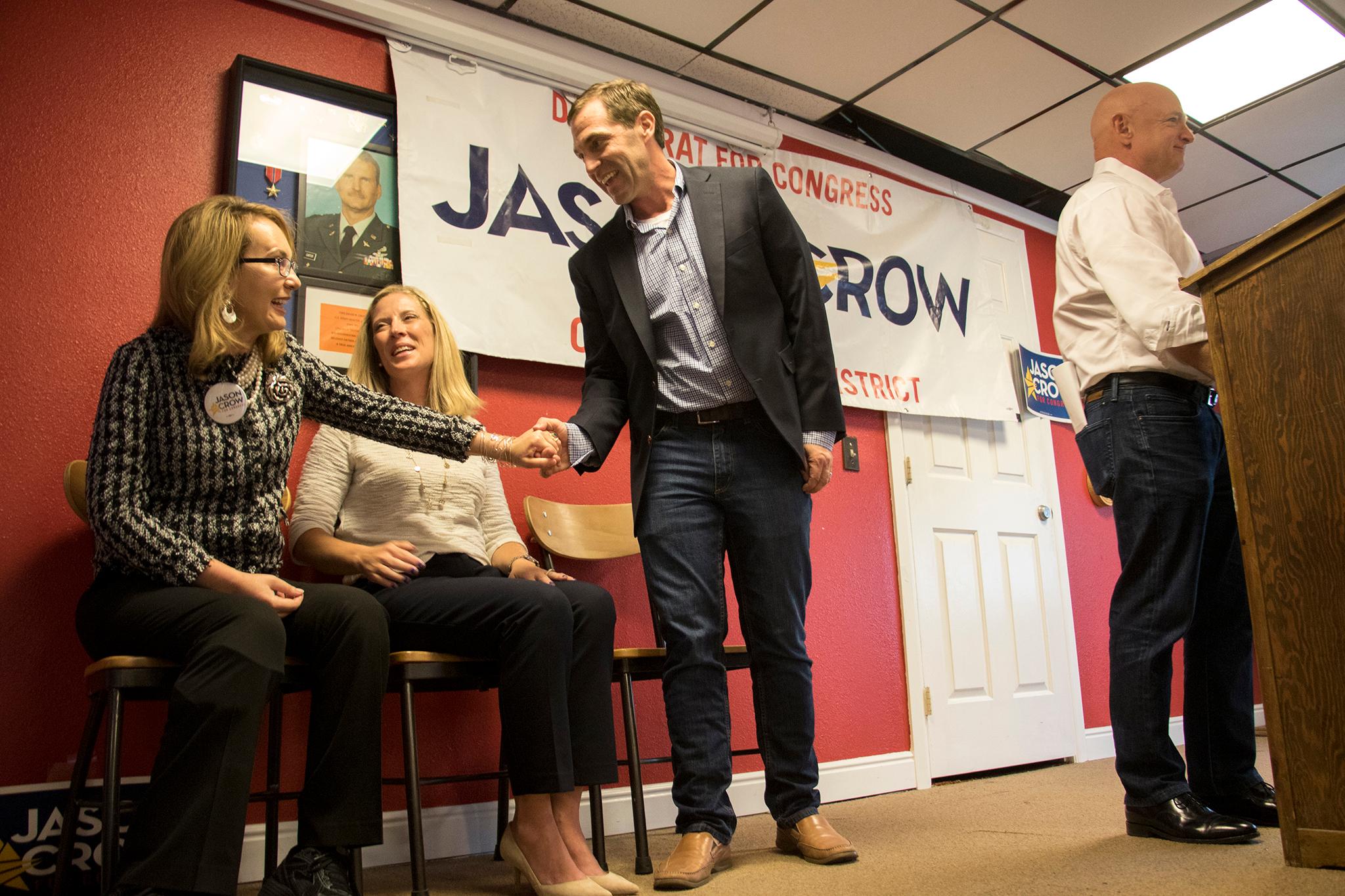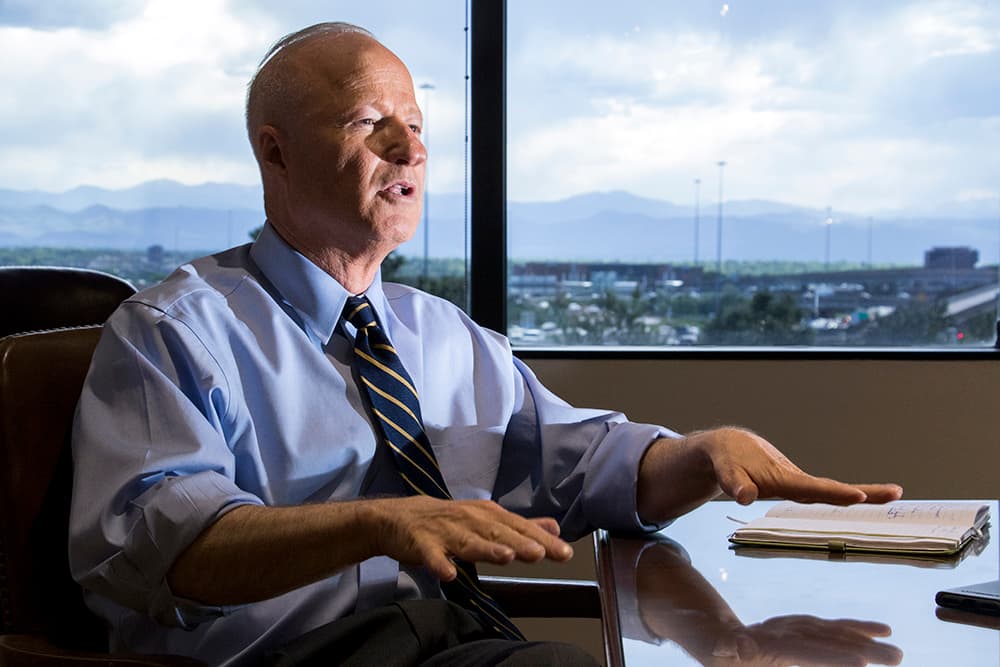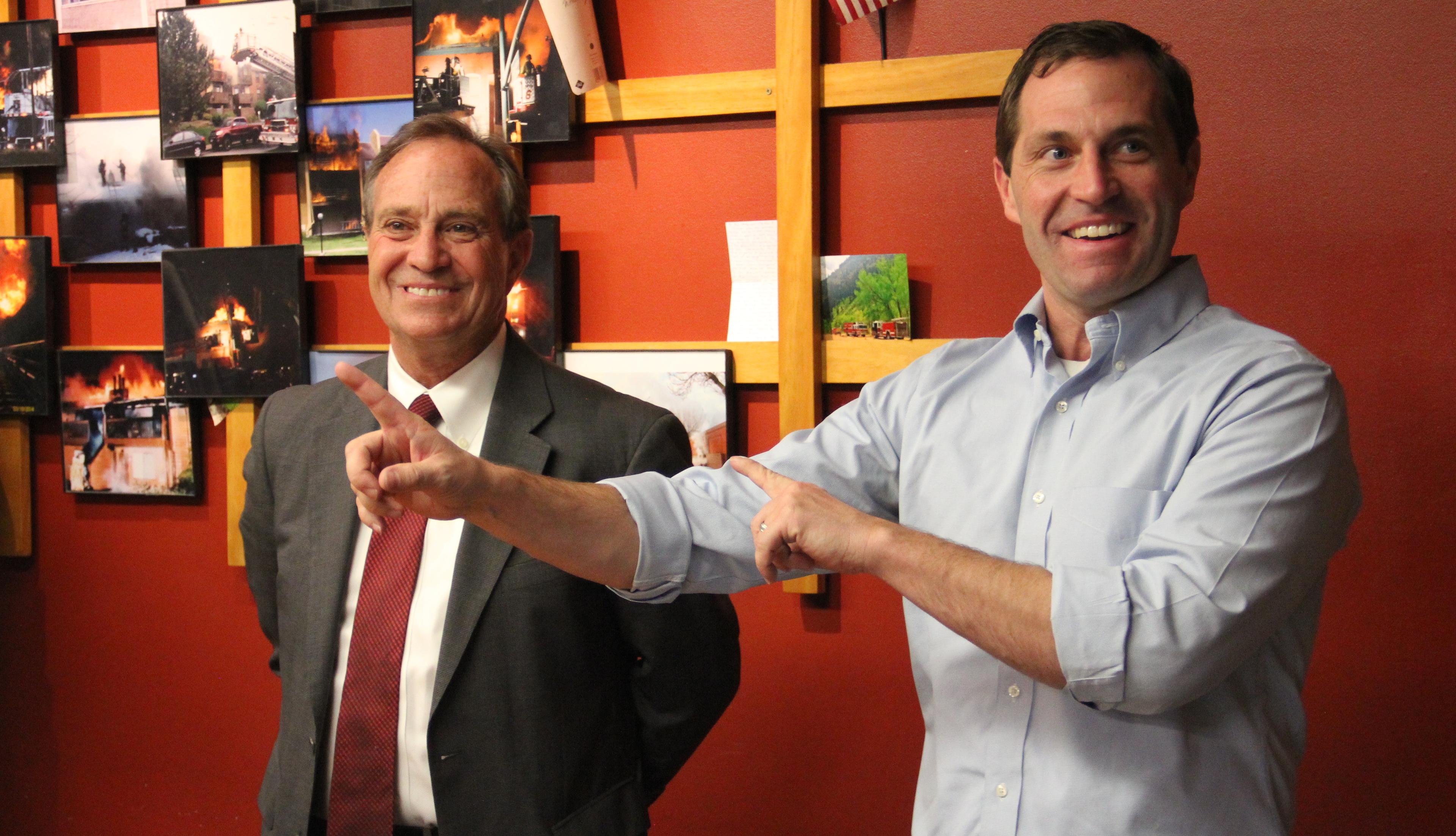You can keep calling 6th Congressional District candidate Jason Crow an underdog.
Actually, go ahead and call the seat’s incumbent U.S. Rep. Mike Coffman an underdog as well.
They both seem to be fine with the tag, though they're both pretty mum on who the favorite is. At the moment, signs seem to be starting to point toward Crow, a Democrat, having the momentum.
“The energy is still there and it’s actually growing,” Crow said after an Aurora campaign stop this week. “I think we can get this done. I’m not somebody who takes anything for granted. I think we have to push hard and fight for every vote between now and the sixth.”
But then again, Coffman has been here before.
Republican strategist Cinamon Watson knows what Coffman knows: The 6th Congressional District race is a tough seat every year. She has pretty good insight, having run Coffman’s 2016 campaign, though she’s not involved in this year’s campaign.
“The polls have always been tight several weeks out from Election Day,” Watson said. “This is nothing new for Team Coffman and this is nothing new for Representative Coffman.”
Coffman may have some reason to worry.
Crow last week reported a record $2.2 million fundraising haul during the third quarter — and polls showing Crow leading Coffman.

Late last month, Coffman got some bad news. A super PAC aligned with House leadership called the Congressional Leadership Fund canceled $1 million in TV ads toward his run. Observers suggested the move meant the super PAC probably felt their money could be spent elsewhere.
“I think they made a mistake,” Coffman said this week during a candidate forum in Denver. “The National Republican Congressional Committee came in and made much of the difference and they’re staying in.”
So while the competitive nature of the race isn’t new, what is new is the amount of money pouring into this year’s race. Coffman was critical of Crow’s fundraising; Crow isn’t accepting money from corporate-aligned PACs but is taking money from membership PACs like ones from labor organizations.
“I feel positive in terms of having a path toward victory,” Coffman said. “Obviously, I’m being outspent by a number of super PACs on the other side that have come in. So there’s an issue with the way to message.”
This past week alone, campaign data trackers Advertising Analytics said $2.8 million was spent in political ads between Oct. 9 to Oct. 15, topping all other House Races across the country.
In Aurora, Crow was joined by Coffman’s colleague in Congress, U.S. Rep. Ed Perlmutter, who let out a loud “CROW!” as the two parted ways following the visit with the firefighters. He was still singing Crow’s praises a day later in Denver, calling Crow one of the finest men he's ever met.

“I know he’s going to be somebody that reaches across the aisle,” Perlmutter said. “Within the Congress, he’s somebody that I think can get stuff done because people will want to work with him.”
They’re both interested in tackling immigration as a priority in Washington.
To some extent, Coffman has an advantage here. He’s lauded by immigrant communities in Aurora, the district’s largest city. Coffman seems especially content knowing many of these residents are often registered Democrats.
“I’ve worked the immigrant groups pretty hard,” Coffman said, adding he wants to address the country's immigration laws. “Obviously, we need secure borders, but we need to have immigration policies that help grow our economy and we have to be compassionate in keeping families together.”
Like Coffman, Crow wants to focus on addressing immigration reform. Crow said Coffman has been promising immigration reform for years. Crow said he hasn’t been able to get it done in Congress, which leads him to believe that it’s a “problem of political will and leadership.”
“We cannot send the same people back to Washington because we will get the same results,” Crow said. He wants to help pass a federal DREAM Act (Coffman also supports these efforts). “We need to pass the DREAM Act. We need to pass it now.”
So what should we expect on Nov. 6?
Let me repeat this: Coffman has been here before. His advantage over Crow, a first-time candidate, is that he’s been on this stage before and his roots in the district run pretty deep (while Crow is originally from Wisconsin).
“I’m well known,” Coffman said. “I’m not somebody who, (is not) a new commodity, and so, I think that’s helpful ... I think that I just have a lot more familiarity with the district, particularly on a bipartisan basis.”

Crow could be among the party’s biggest gain if the blue wave materializes. He sees himself as part of a larger generation of candidates that aren’t necessarily from political backgrounds but come from the service, non-profit boards and businesses.
“I think an awful lot of us are going to get elected,” Crow said. “And what you’re going to see is a sea change of culture when we all come to Washington to bring a new style of leadership there.’
Watson said this seat is always heavily targeted. She also mentions Coffman’s roots in the district. Aurora, after all, is something like his hometown, where he grew up and went to school.
“This is a position that he is not unfamiliar with,” Watson said. “I would absolutely not bet against Mike Coffman.”













